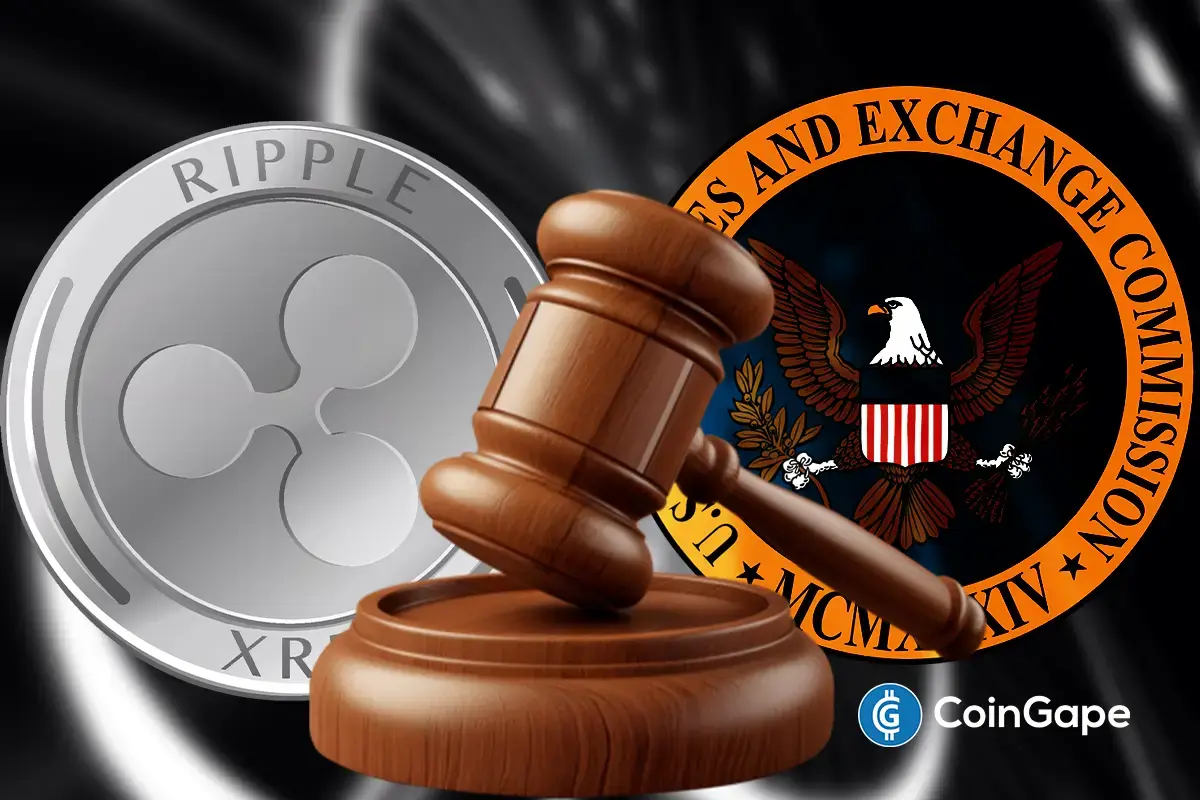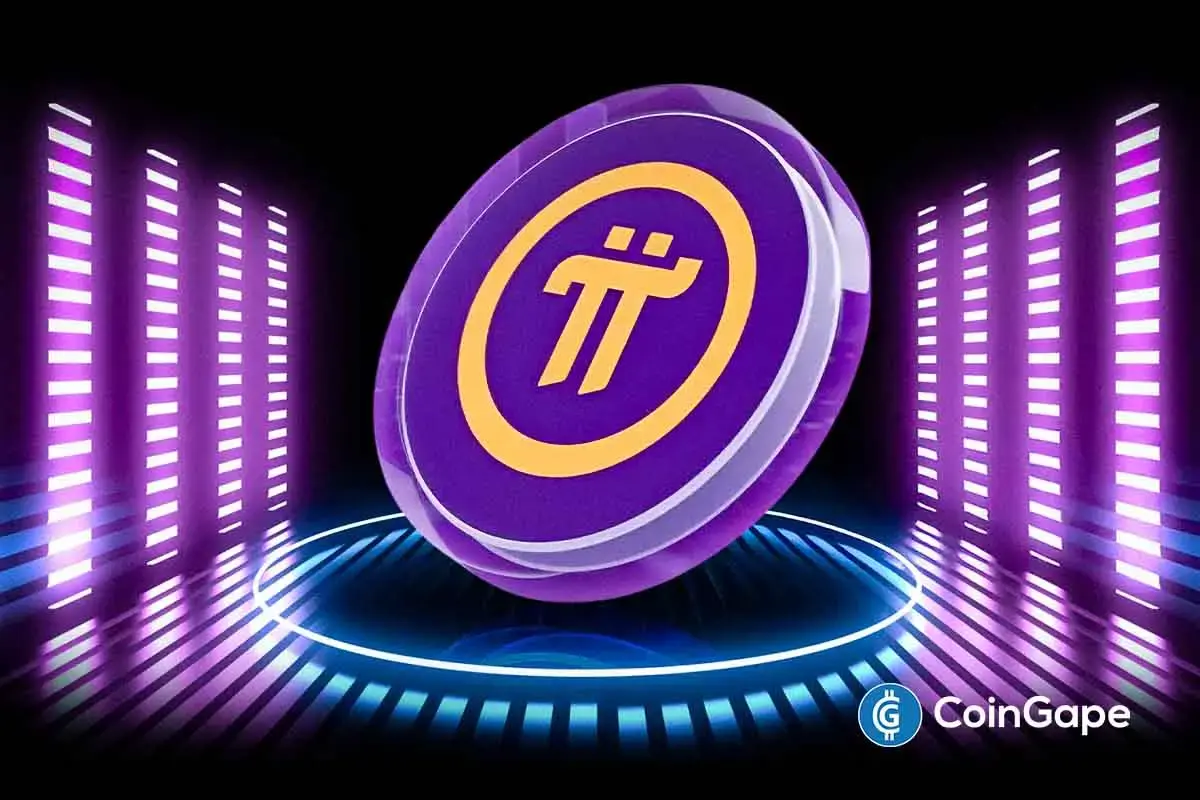Regulation
GOP Whip Tom Emmer Accuses SEC Chair of Harassment

US Congressman Tom Emmer has lashed out at the SEC Chairman Gary Gensler and called him a regulator by harassment, this in response to Gensler encouraging the public to report tips or complaints to the SEC.
Tom Emmer Accuses SEC Chair of Harassment
US Congressman Tom Emmer has demanded that SEC Chairman Gary Gensler be fired. Emmer issued the call to action on X (previously Twitter) after Gensler posted a message asking the public to report tips or complaints to the SEC. Emmer accused Gensler of ‘regulation-by-harassment’ and used a hashtag to call for the SEC to terminate its chairman.
I’d like to report the SEC Chair for regulation-by-harassment. #FireGaryGensler https://t.co/oMyDIEU3o1
— Tom Emmer (@GOPMajorityWhip) July 12, 2024
Emmer’s criticism comes after other top personalities in the crypto space have also expressed their dissatisfaction with Gensler’s leadership.
Concurrently, the owner of the Dallas Mavericks, Mark Cuban, has openly called for the President of the United States, Joe Biden, to fire Gensler for not meeting the agency’s core responsibility.
Growing Tensions Between SEC and Crypto Industry
The history of the relationship between the SEC and the crypto market has been rather hostile for the past several years. Several industry stakeholders have claimed that change is needed at the SEC with regard to leadership.
This sentiment was captured during a recent crypto roundtable that was organized by Congressman Ro Khanna where participants including the Ripple CEO Brad Garlinghouse and the CEO of Galaxy digital Mike novogratz complained about the actions of the SEC.
Speaking at the roundtable, Cuban restated his position, claiming that Gensler’s attitude to regulation hampers the further development of the crypto industry. He said that due to the absence of definite rules, the crypto firms are unable to conduct their business legally.
Calls for Leadership Change at the SEC
There are various complaints about Gensler who has been criticized and others have urged to relieve him from the post, including those on Capitol Hill. Emmer’s public criticism is in line with the larger trend within the crypto community and some politicians who argue that Gensler’s approach is harmful to the industry.
Cuban’s criticism of Gensler could be traced back to an ongoing feud with the SEC and he said that Gensler’s exit is vital for the development of the crypto market. His remarks during the roundtable are in sync with the sentiments that have been expressed within the industry concerning the SEC.
The criticism of Gensler is politically significant as it may affect the chances of President Biden to be re-elected for the second term. Cuban and other industry leaders have stated that the administration’s approach to regulating cryptocurrencies could threaten its popularity among voters.
During the roundtable, the participants also debated how Gensler’s leadership could affect the upcoming election, some thinking that a shift at the SEC would be beneficial for the Biden administration politically.
Read Also: Germany Runs Of Bitcoin With 3846 BTC Moved To Flow Traders
The presented content may include the personal opinion of the author and is subject to market condition. Do your market research before investing in cryptocurrencies. The author or the publication does not hold any responsibility for your personal financial loss.
Regulation
USDC Issuer Circle Set To File IPO In April, Here’s All

USDC issuer Circle is reportedly set to file its initial public offering (IPO) in April as part of the firm’s plans to finally go public. The stablecoin issuer is allegedly already working with top financial institutions to achieve this move.
Circle To File IPO In Late April
According to a Fortune report, Circle is looking to file its IPO in late April, although the listing period remains uncertain. The report noted that when a company files to go public, its shares usually begin trading four weeks later, indicating that the listing could occur in May. However, there is also a scenario where the IPO process could drag on for months.
The stablecoin issuer is reportedly working with investment banks JPMorgan Chase and Citi to achieve its long-anticipated IPO. The firm had previously tried to go public in 2021 under a SPAC arrangement with a shell company.
The US SEC failed to sign off on this arrangement back then, and the company eventually scrapped these IPO plans by the end of 2022 when the crypto exchange FTX collapsed and the broader crypto market experienced a downturn.
Revelation about Circle’s IPO plans comes just days after the stablecoin issuer partnered with NYSE’s parent company to explore USDC’s use in traditional finance (TradFi). Meanwhile, the USDC stablecoin recently launched in Japan following approval from the country’s regulator. Notably, USDC is the first and only global dollar stablecoin approved under Japan’s stablecoin framework.
An Easier Path Now For The Stablecoin Issuer
Circle will likely face less resistance for its IPO plans under the current SEC administration. Under acting Chair Mark Uyeda, the Commission has shown its willingness to work hand in hand with crypto firms, which was missing under Gary Gensler’s administration.
US SEC Chair nominee Paul Atkins has also shown his willingness to change the approach that Gensler’s administration adopted towards crypto firms. During his nomination hearing, the SEC Chair nominee promised to prioritize providing regulatory clarity for the industry.
Circle’s IPO listing would be the biggest since the top crypto exchange Coinbase went public in 2021. Interestingly, Coinbase owns an equity stake in the crypto firm.
The firm’s USDC is currently the second-largest stablecoin by market cap, only behind Tether’s USDT. The stablecoin industry is heating up as more financial institutions look to develop their own stablecoin.
Donald Trump’s World Liberty Financial recently revealed plans to launch its USD1 stablecoin, while asset manager Fidelity is also considering doing so.
Disclaimer: The presented content may include the personal opinion of the author and is subject to market condition. Do your market research before investing in cryptocurrencies. The author or the publication does not hold any responsibility for your personal financial loss.
Regulation
Japan Set To Classify Cryptocurrencies As Financial Products, Here’s All

Cryptocurrency investors in Japan are bracing for impact following a plan to reclassify digital assets as financial products. While the plan has elicited excitement from cryptocurrency enthusiasts in the Far East, the ambitious plan will have to scale several legislative hurdles.
Japan Targets Reclassification Of Cryptocurrencies As Financial Products
According to a report by Nikkei, Japan’s Financial Services Agency (FSA) is inching toward classifying cryptocurrencies as financial products. Per the report, the FSA intends to achieve the reclassification via an amendment to the Financial Instruments and Exchange Act.
Currently, digital assets in Japan are considered crypto assets conferred with property rights and seen as payment means. Under the FSA’s plans, cryptocurrencies in Japan will be treated as financial products in the same manner as traditional financial products.
The FSA says it will adopt a slow and steady approach toward the reclassification, carrying out “a private expert study group” to test the waters. If everything goes according to plan, the FSA will submit the amended bill to Parliament in early 2026.
The classification of cryptocurrencies as financial products will have far-reaching consequences for the local ecosystem. Experts say treating cryptocurrencies as financial products will bring Japan closer to a crypto ETF launch amid a changing regulatory landscape.
Furthermore, the move may lower current cryptocurrency taxation for local investors since existing capital market rules will apply to the asset class.
A Fresh Bill For Crypto Insider Trading Is Underway
Apart from the reclassification, the FSA disclosed plans for new legislation against insider trading. The move flows treating cryptocurrencies as financial products and will strengthen existing investor protection rules.
“It is a direction to establish a new insider trading regulation that prohibits trading based on unpublished internal information,” said the FSA. “We will develop laws to prevent unfair transactions.”
However, Japan’s cryptocurrency scene is heating up to a boil, driven by local and international players. Last week, stablecoin issuer Circle secured approval from the FSA for USDC with top exchanges set to list the stablecoin.
Japan’s Metaplanet has tapped Eric Trump to join its Strategic Board of Advisors as it continues to load up Bitcoin.
Disclaimer: The presented content may include the personal opinion of the author and is subject to market condition. Do your market research before investing in cryptocurrencies. The author or the publication does not hold any responsibility for your personal financial loss.
Regulation
Kentucky Governor Signs Off On ‘Bitcoin Rights’ Bill, Strengthening Crypto Protections


In what is being dubbed a major development in the crypto regulation space, the Governor of the US state of Kentucky, Andy Beshear, has signed the ‘Bitcoin Rights’ bill into law. The law promises to safeguard protections for Bitcoin (BTC) users.
Bitcoin Rights Bill Comes Into Effect
Crypto regulations continue to evolve under pro-crypto US President Donald Trump’s administration. In the latest development, Kentucky has become the newest state to enshrine protections for digital asset users.
In an X post published on March 24, crypto advocacy group Satoshi Action Fund announced that Governor Beshear had signed the much-anticipated Bitcoin Rights bill into law. The post stated:
The right to self-custody, run a node, and use of digital assets is now protected for millions of Americans without fear of discrimination.
The bill was first introduced to the Kentucky House by Rep. Adam Bowling on February 19. According to the bill’s description, it seeks to safeguard users’ rights to use digital assets and self-custody wallets. Additionally, it aims to prohibit local zoning changes that discriminate against crypto mining operations.
The legislation outlines guidelines for running a digital asset node and excludes digital asset mining from money transmitter license requirements. It also clarifies that crypto mining or staking is not considered an offer or sale of securities.
On February 28, the bill passed Kentucky’s House of Representatives with a unanimous vote of all 91 representatives in favor. It later passed the Kentucky Senate on March 13, receiving backing from all 37 senators.
Kentucky’s proactive stance toward cryptocurrencies isn’t new. Earlier this year, the state became the 16th US state to introduce legislation seeking to create a Bitcoin strategic reserve.
Meanwhile, neighboring state Arizona is also joining the crypto movement. A recent X post by Bitcoin Laws revealed that Arizona’s House Rules Committee has passed two Bitcoin reserve bills — SB1373 and SB1025. These bills will now head to a full floor vote.
Renewed Optimism Under Trump Administration
Following Trump’s victory in the November presidential election, cryptocurrency regulations in the US are evolving rapidly, with many states introducing legislation aimed at strengthening their digital asset ecosystems and attracting crypto businesses.
Positive changes in crypto regulations are encouraging industry businesses to expand. For instance, leading crypto trading platform Coinbase recently announced plans to hire 1,000 employees in the US.
The Trump administration has also witnessed several lawsuits being dropped against major crypto entities, including Kraken, Coinbase, Gemini, and others. At press time, Bitcoin trades at $87,399, down 0.2% in the past 24 hours.

Featured Image from Unsplash.com, chart from TradingView.com

Editorial Process for bitcoinist is centered on delivering thoroughly researched, accurate, and unbiased content. We uphold strict sourcing standards, and each page undergoes diligent review by our team of top technology experts and seasoned editors. This process ensures the integrity, relevance, and value of our content for our readers.
-

 Altcoin21 hours ago
Altcoin21 hours agoWill XRP, SOL, ADA Make the List?
-

 Bitcoin22 hours ago
Bitcoin22 hours ago$500 Trillion Bitcoin? Saylor’s Bold Prediction Shakes the Market!
-

 Market22 hours ago
Market22 hours agoCoinbase Stock Plunges 30% in Worst Quarter Since FTX Collapse
-

 Bitcoin23 hours ago
Bitcoin23 hours agoBig Bitcoin Buy Coming? Saylor Drops a Hint as Strategy Shifts
-

 Market16 hours ago
Market16 hours agoEthereum Struggles to Break Out as Bear Trend Fades
-

 Market21 hours ago
Market21 hours agoEthereum Reclaims Top DeFi Spot As Solana DEX Volume Drops
-

 Market15 hours ago
Market15 hours agoHow Did UPCX Lose $70 Million in a UPC Hack?
-

 Market20 hours ago
Market20 hours agoTrump’s USD1 Stablecoin Eyes Trust Recovery in Crypto






















✓ Share: